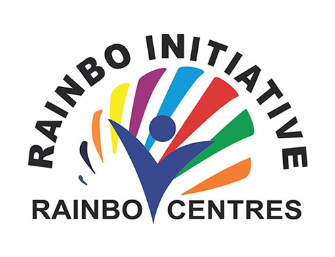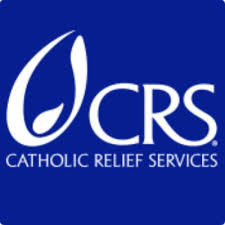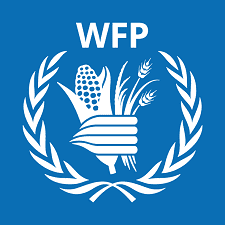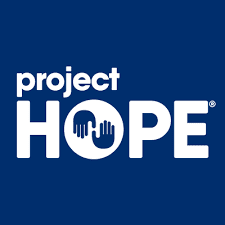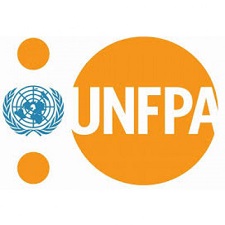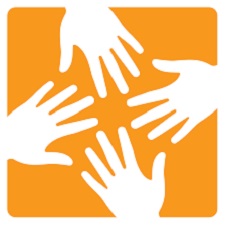Job Vacancies @ Rainbo Initiative, Sierra Leone – Project End-line Evaluation Consultant
 Job Description
Job Description
TERMS OF REFERENCE
Hiring Office:
Rainbo Initiative Head Office
Consultancy title:
Project End-line Evaluation Consultant
Purpose of consultancy:
Access the performance of the EU funded SGP which ended on 1st March 2022.
About Rainbo Initiative
(adsbygoogle = window.adsbygoogle || []).push({});
Rainbo Initiative (RI) have been in existent since 2003. It was established to provide support services such as; free Clinical Care, psychosocial counselling and client Support to survivors of domestic violence, Sexual and Physical Assaults, and issues relating to Gender Based Violence (GBV) against girls and women in Sierra Leone. Rainbo Initiative is operating in five Centres within Government Hospitals in Freetown, Kenema, Kono, Bo and Bombali district head quarter towns.RAINBO INITIATIVE VALUES IN PRACTICEWe are open and accountable:Promote a culture of openness and transparency, with partners, sponsors and donors.Holds self and others accountable to achieve the highest standards of integrity.Consistent and fair in treating other people.Open about mistakes and keen to learn from themAccountable for ensuring we are a safe organization for all children, girls and young people.
For more information on Rainbo Initiative, please visit: www.rainboinitiative.org
(adsbygoogle = window.adsbygoogle || []).push({});
Scope of work:(Description of services, activities, or outputs)
Aim of Consultancy: The purpose for this evaluation is to assess the performance of the project and capture project achievements, challenges and best practices to inform future similar programming. It will also review the recommendations of the ROM reports and assess the extent to which these were implemented. The evaluation will also ensure accountability towards European Union as a donor and the beneficiaries of the program. On the other hand, it offers a learning aspect for all stakeholders. The evaluation will also identify key lessons learned, challenges and the flexibility of the Programme to adapt and respond to the changes and sustainability of RI as an organization.
The following are key questions to guide the evaluation:1. To what extent do community members demonstrate capacity to identify and respond to incidences of GBV and other forms of violence against women?2. How do communities respond to SGBV survivors seeking justice, care and psycho-social support?3. Do SGBV survivors have access to a comprehensive package of psychosocial, health, economic empowerment, and legal aid services in the targeted communities in the 3 districts?4. What is the extent of collaboration between FSU (Family Support Unit), MOHS (Ministry of Health and Sanitation), MSW (Ministry of Social Welfare), MOJ (Ministry of Justice) and RI to ensure that survivors of SGBV receive comprehensive care and support and that perpetrators are brought to justice? 5. How do community members think about the project delivery method?
(adsbygoogle = window.adsbygoogle || []).push({});
Objectives of the Endline Evaluation
The end of project evaluation will have three objectives:
Objective 1: Evaluate to what extent the SGP has delivered effective, efficient, relevant and timely activities to beneficiaries as set in the project log frame and how could the delivery method inform future programming. Effectiveness The end line evaluation should assess the following: To what extent have the planned objectives in the log frame of the project, been reached, per indicator, disaggregated by gender, disability and age? To what extent have the project activities contributed to the overall goal? Was the project effective in increasing skills of RI Management to improve on the services to survivors of SGBV What were the major factors influencing the achievement of the objectives of the project? What opportunities for collaboration have been utilized and how have these contributed to increased effectiveness? Have proper accountability and risk management framework(s) been in place to minimize risks on program implementation? Efficiency How efficient was the delivery of project by RI, not only in terms of expenditure, but also in terms of implementation of activities? Was the project activity implementation (modality), considered to have been cost-efficient, while not compromising quality? What would have been opportunities within project to reach more beneficiaries with the available budget or to reduce costs while reaching at least the same number of beneficiaries without compromising quality? What choices were, made in terms of collaboration and non-collaboration during program design? Why were, these choices made? Were, alterations made to the program design in terms of collaboration during the implementation phase based on the reality on the ground? What were the outcomes of these choices for effective and efficient program implementation? Relevance/Impact How relevant were the objectives and activities, implemented by the project, in addressing humanitarian needs in Lakes states? How do beneficiaries perceive the relevance of the project and how has the activities implemented improved their lives? Are there any stories of change? How has the collaboration between Rainbo, partners and line ministries contributed to appropriate response of specific needs and priorities of the beneficiaries? To what extent was project able to adapt and provide appropriate response to context changes and emerging local needs, and the priorities of beneficiaries? Timeliness Were the project design and interventions timely in responding to the needs on the ground? Were, the activities timely implemented in comparison to project planning? Were funds available in time during implementation of the activities to respond to new developments? To what extent did the collaboration between RI and line ministries and other stakeholders such as the Local Councils contribute to efficient and timely coordination of logistic activities and processes? Reach To what, extent have the project beneficiaries been reached and what mechanisms were in place to improve coverage? What are the main reasons that the project provided or failed to provide to its target beneficiaries proportionate to their need? Quality: The end line evaluation should assess the overall quality of the implementation. It is important to include beneficiaries’ opinion on the quality of the services received and the following questions should be closely addressed: What mechanisms are in place to track project implementation of the RI projects? (I.e. internal monitoring, evaluation, accountability, learning and quality assurance mechanisms)?How have they been, utilized to increase quality within the project? Did the quality of activities, delivered by project meet the needs and expectations of the beneficiaries? What do beneficiaries feel could be improved in Contribution to improving local capacity To what extent, did the project interventions contributed to build long-term community capacity? To what extent, was the project participatory in all the project cycle? Objective 2: Assess whether the collaboration between RI, and FSU, Ministry of Health and Sanitation, Ministry of Gender and Children’s Affairs, Ministry of Justice and the Local Councils has added value, to the interventions with a positive effect on beneficiaries and other stakeholders.
What has contributed to this value addition, and what has not in terms of learning, visibility and joint activities? Learning Which of the interventions, approaches, and modalities/strategies have been most effective according to RI and line ministries, the FSU and Local Councils? Is there any significant evidence on how project learning, were generated and applied to improve the delivery or effectiveness or efficiency of activities? Who benefited from shared learning experiences (e.g. quarterly, joint field visits, workshops, provision on best approaches and methodology), the partners or also the local council, community members and beneficiaries? How did the consortium partners learn from these experiences? Visibility What measures have been taken, to create visibility of the project’s added value, towards line ministries, Local Councils, the FSU and other partners including other NGOs? Joint activities What joint activities were, undertaken during the implementation of project, both at a field level as well as at a country office level? (Please provide concrete, short, substantial, cases of evidence)Objective 3: Identify and assess key lessons learned, challenges and draw recommendation for future programming of GBV Prevention and inclusive Response services in the country. The end line evaluation should at least include one lesson learned and recommendation per evaluation category, i.e. effectiveness, efficiency, relevance etc. What are the key lessons learned per objective? To what extent has the delivery of response activities contributed to effective, efficient, relevant and timely delivery of project and enhanced impact for the beneficiaries? The key element to consider is: Sustainability Will the changes caused by this project continue beyond the life of the project? What, mechanisms have, RI, and partners put in place to sustain the key Programme Outputs and Outcomes? How has the project worked with local partners and the FSU to increase their capacity in a sustainable way? What motivations /mechanisms exist for partners to continue playing these roles? What are the risks facing sustainability of Programme outputs and outcomes?
(adsbygoogle = window.adsbygoogle || []).push({});
Activities should include: Develop an inception report, which will serve as an agreement between parties on how the evaluation will be conducted.
Sub deliverables under this activity includes: Work plan indicating the phases of the phases of the evaluation, the timing, key deliverables and milestones Specific Evaluation methodology Develop methodology and qualitative research tools, approved by RI, Partners and Project Team
Sub deliverables under this activity includes: Development of Questionnaires Recruitment and training of Data collectors Testing and Validation of data collection tools/ Questionnaire Conduct data collection to include the use of a number of approaches to gain a deeper understanding of the outcomes of the project, including: Desk review of background documents (project document, project monitoring data, progress report, mid-term review report, field visit reports, lessons learnt report etc.).Key informant interviews (e.g. with RI project staff members, i.e. Deputy Executive Director, Project manager, Field Officers, Interns and key community members/beneficiaries, local partner (HI, CARE, OPDs), CSOs and representatives from the line ministries) to gather substantial subjective evidence on the effectiveness, efficiency, relevance and timeliness of the project activities implementation and delivery Focus group discussions (e.g. with stakeholders, community members, and representatives of GSGs and VSLA members, The FGD will serve as input for the narrative anecdotal evidence. A learning event in the three project districts to disseminate lessons learned through a presentation and a workshop facilitated by the consultant Sub deliverables include: Visit to the project communities in Freetown, Bo and Makeni Interview of beneficiaries in the three districts Interview with community stakeholders Interview of Partners to include the Family Support Unit. Conduct data analyses on the initial findings of the evaluation in accordance with the three objectives. The consultant will employ, train and place data collectors in all five-project district to collect data in the different project communities
Conduct a workshop to inform and discuss the findings in the draft report. Sub deliverables include: Draft report Workshop agenda Consolidate and finalise the report and submit
(adsbygoogle = window.adsbygoogle || []).push({});
Duration and working schedule:
NoActivityDuration1.Development of inception report1 week2.Develop Assessment tool/ Questionnaire, recruitment and training of data collector1 week3.Conduct data collection 3 weeks4.Collect and analyse data followed by holding a workshop to discuss the findings in the draft report1 week5.Consolidate and produce final report1 week
Place where services are to be delivered:
The project locations are in Freetown, Bo and Makeni where field activities will be conducted. The organization’s Head Office is at 32B Smart Farm, Off Wilkinson Road Freetown.
Delivery dates and how work will be delivered
All activities should be delivered on or by 22nd April 2022, unless otherwise agreed with the RME manager in consultation with Executive Director/ Deputy Executive Director.
Monitoring and progress control, including reporting requirements, periodicity format and deadline:
The consultant will be required to have weekly progress briefing meetings with the RME manager to monitor progress on the above activities.
Supervisory arrangements:
The consultant will be under the overall guidance of the Research Monitoring and Evaluation Manager with support from the Executive Director
Expected travel:
The consultant will be expected to hold consultations in four project communities in Freetown, 4 project communities in Makeni and 4 project communities in Bo
(adsbygoogle = window.adsbygoogle || []).push({});
Required expertise, qualifications, and competencies, including language requirements:
Essential: At least Master’s degree in Education, International Development Studies, Humanitarian Leadership Program, or a related field At least 7 years’ experience in working with humanitarian sectoral programs relating to GBV, gender equality and empowerment of women and girls including those with disabilities Demonstrated experience with quantitative and qualitative research, data base management and statistical data analysis Experience of working in Western Area/Bombali and Bo Districts Experience of evaluating GBV prevention and inclusive response services Proven record of communicating with beneficiaries. Ability to assess and further develop a conceptual evaluation tool
Inputs/services to be provided by Rainbo Initiative:
RI will provide a desk-space for the Consultant to work and will provide on-going guidance and support throughout the consultancy.
(adsbygoogle = window.adsbygoogle || []).push({});
Other relevant information:
Tax and insurance: RI will deduct 5.5% of withholding Tax income as per Sierra Leone Income Tax Law. The consultant shall be responsible for his/her insurance during the assignment.
RI Code of Conduct: RI work is based on deeply held values and principles, it is essential that our commitment to the protection of women and children’s rights and humanitarian principles is supported and demonstrated by all members of staff and consultants. RI Code of Conduct sets out the standards, which all staff members and consultant (s) must uphold. The consultant is bound by the principles and conditions of RI Code of Conduct (This includes Safeguarding Policy) and would be required to sign off.
(adsbygoogle = window.adsbygoogle || []).push({});
Interested candidates that meet the above consultancy requirements should submit the following: Proposal: detailing the experience of the applicant in relation to the required consultancy including methodology, workplan and budget. An up-to-date CV outlining all past and present work experience and education.
The above should be submitted to esther.s@rainboinitiative.org and copy anthony.s@rainboinitiative.org
All submissions should be in on or before 18th March 2022 @ 5pm.
(adsbygoogle = window.adsbygoogle || []).push({});
Disclaimer: Careerical eConsult posts job listings for the convenience of job seekers. We do not endorse or recommend employers, and a posting does not constitute an endorsement or recommendation. Careerical eConsult explicitly makes no representations or guarantees about positions listed on our website. Careerical eConsult is not responsible for safety, wages, working conditions, or other aspects of employment. It is the responsibility of applicants to research the integrity of the organizations to which they are applying. We advise you to use caution and common sense when applying for any position with an organization or private party.
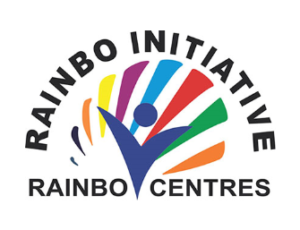 Job Description
Job Description